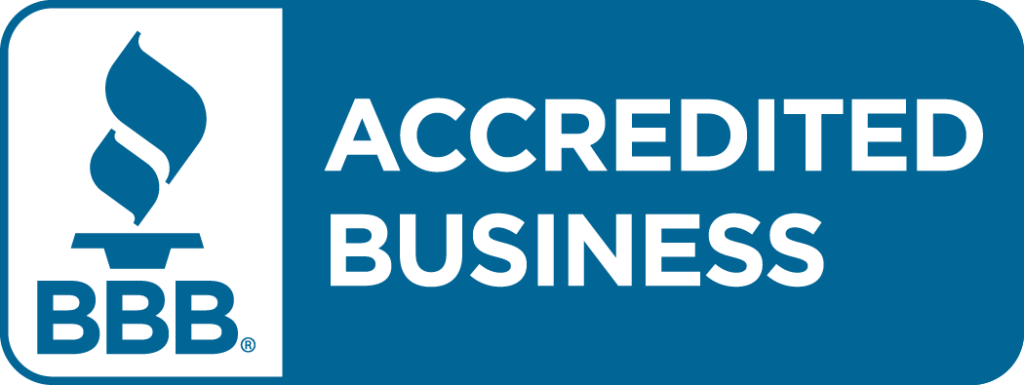It goes without saying that lately has been a challenging time. But amidst all of the infections, death, and panic caused by the coronavirus outbreak, there have been extraordinary examples of kindness, goodness, and human decency.
College students have mobilized and offered to help shop for the most vulnerable among us. Police departments have standing offers for truck drivers to call them for help when they have trouble accessing food. And in addition to today’s frontline medical personnel, we’ve seen an outpouring of retired medical professionals answering the call and lending their services when we need them most.
These are just a few examples of men and women stepping up to do what they can to help in the middle of the current coronavirus crisis. And believe me, there are many more examples than just these few.
I bring this up for a specific reason. All too often we focus on the negatives. In times like these, that becomes especially easy as we all know there are plenty of negatives to focus on. We must fight that urge and do what we can to come together, and if at all possible try to see the good that has come or could come out of this admittedly terrible situation.
I can say it no better than the Nobel Prize-winning Swiss-born poet, Herman Hess.
[one_third] [/one_third][two_third_last][testimonial author= “Herman Hess”]“I have always believed, and I still believe, that whatever good or bad fortune may come our way we can always give it meaning and transform it into something of value.”[/testimonial][/two_third_last]
[/one_third][two_third_last][testimonial author= “Herman Hess”]“I have always believed, and I still believe, that whatever good or bad fortune may come our way we can always give it meaning and transform it into something of value.”[/testimonial][/two_third_last]
Right now we’re riding out the storm. Millions have lost their jobs and had their lives upended. However, that doesn’t mean we can’t glean something good from all that’s happened. I started off by listing some of the things citizens are doing around the country in response to COVID-19. Well, they’re not alone.
The trucking industry has responded too. Though these changes were born or forced out of bad fortune, as Hess would put it, we can transform what we’ve learned into something of value as we move forward and put coronavirus behind us…hopefully sooner rather than later.
Here are three ways fleets have adapted to the coronavirus that can benefit driver recruiting even after the pandemic has ended.
[hr style=”3″ margin=”40px 0px 40px 0px”]
1. Embracing Online Driver Orientation
Drivers, like the rest of us, have become increasingly concerned about unnecessary points of contact. Traditionally when joining a new fleet – that meant traveling, usually by bus or plane, staying in a hotel, and congregating with other drivers during an on-site driver orientation.
During a pandemic, such as we are experiencing at the moment, each step along this process exposes prospective drivers to potential infection risks. What once could be considered a hassle now becomes a liability. In response to this, drivers have become more vocal about wanting another option, more specifically an online option for driver orientation; and some fleets have embraced the practice.
The idea of a remote online orientation has been around for a while, but it never really seemed to pick up steam…until now. The option to attend and complete orientation without risking infection on public mass transit or staying in hotels has become a welcome and attractive alternative to drivers and fleets alike.
If online orientation isn’t something your fleet does, you may want to at least check into it and see if it may be a good fit. This is something that could not only benefit your fleet’s recruiting efforts now but once we move past this. One of the best ways to improve your driver recruiting on any level is to do your best to remove as much friction as possible. Simplifying your orientation and opening up an online option does exactly that.
[hr style=”3″ margin=”40px 0px 40px 0px”]
2. Have Employees Work Remotely When and Where Possible
In our current situation, this again comes down to trying to reduce unnecessary risk and contact wherever possible. The tools made available with today’s computer and internet advancements allow many, like me, to work from home while still maintaining contact with coworkers and access to all necessary information.
In my discussion with Randall-Reilly’s VP of Trucking Operations, Scott Maldondo, for this week’s Randall-Reilly Review, we talked about how many fleets he works with have now made the shift to having their driver recruiters work from home.
Once this is all over you may not want to have every recruiter work remotely, but knowing you are capable of doing so and knowing you have the ability to function with a partial remote workforce opens up possibilities for your fleet.
More remote workers could translate to less office space need, which means the fleet has lower overhead with reduced utilities, rent, etc. A remote option also opens up possibilities for your recruiters. You may not want someone who’s feeling a little under the weather coming into the office, especially right now.
But we all know there are plenty of times we push through and continue on with work even if we don’t feel great. If a recruiter (or another staff member) isn’t 100%, but still willing and able to work, allowing them to do so from their home means you keep other employees safe from sickness, while also allowing your recruiter to remain productive from home.
[hr style=”3″ margin=”40px 0px 40px 0px”]
3. Waiving the Road Test for an Experienced CDL Holder

Another topic we touched on in my interview with Scott Maldonado, is the option fleets have to accept a valid CDL in place of a road test. This option was available to fleets even before the coronavirus outbreak, but for the most part, it was never really taken advantage of.
It’s not hard to see why some fleets have shied away from this practice. Some lawyers have built their entire business around going after trucking fleets after one of their drivers is involved in an accident. In recent years, the fleets have been getting the worst of it and forced to pay out huge settlement sums.
Many fleets, perhaps yours included, don’t want to take the risk of not road testing a driver only for them to later become involved in an accident. In light of the current situation, however, some are actually beginning to accept a valid CDL in lieu of an on-site road test.
I realize these are extraordinary times and the current circumstances are far from the norm, so I’m not recommending or even suggesting that all fleets simply do away with road tests. I am saying, however, that for certain drivers with a safe record it could be a way to once again remove friction and get them behind the wheel of your truck easier and faster.
It all comes down to your fleet, but it may be worth it to try and outline some requirements that if met could allow a driver to bypass the typical roadtest. For instance, you could waive a road test for drivers with more than 5 years of experience with no accidents on their record, or no accidents for a certain amount of time, such as the last 24 months.
Again, this is a legal and available option for fleets when it comes to their driver recruiting. If there is a way to ease the transition for a new driver coming to your fleet, while at the same time protecting your fleet and assuring they are indeed a safe driver, it could be a way to streamline your recruiting process for qualified drivers and make you a more attractive option to prospects.
[hr style=”3″ margin=”40px 0px 40px 0px”]
Applying the Lessons Learned from the Coronavirus Moving Forward
The impact of COVID-19 will be felt long after a vaccine is developed and life finally returns to some form of normalcy. Much of the changes that have taken place over the past several months have been forced upon us. But as Mr. Hess, so eloquently put it, that doesn’t mean we can’t give these changes meaning and transform them into something of value.
One way or another we’ve all made changes to our routines and lives in response to this virus. Though it’s not something we wanted or looked for, it can ultimately lead to good. Every fleet has had to do something out of the norm in response to this. Maybe you haven’t tried any of the tactics we discussed today, and perhaps they’re not the best fit for your particular fleet, the point remains the same – use what you’re doing right now to learn and grow for the future.
If your fleet is among those who have taken to online orientation, employing a remote workforce, or waiving road tests, don’t let this time for learning and adapting end when the coronavirus is finally beaten. In a way, we’re all being forced to grow and learn how to work in extreme circumstances. Take what you’ve learned from this experience and apply it as your fleet moves forward both through the rest of the economic shutdown and beyond to the return to normalcy.




